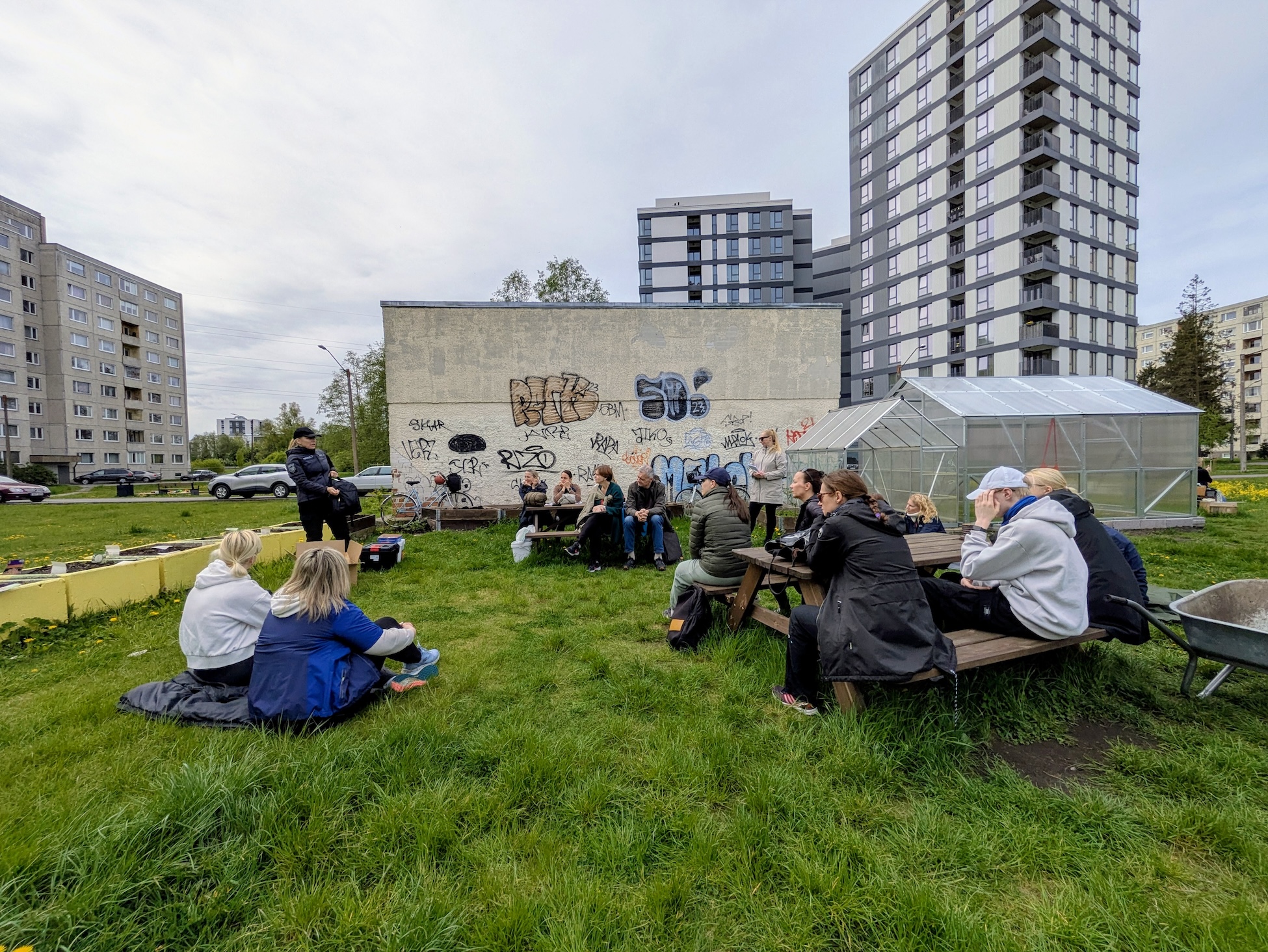
The last group of participants in Väike-Õismäe’s spring urban survival training
The training brought together participants of different ages who wanted to develop their skills for unexpected situations—such as power outages, water shortages, or the need to evacuate their homes quickly. The urban environment poses specific challenges during crises, and participants had the chance to become familiar with them through hands-on experience.
Practical activities: fire, food, and the emergency bag
Participants learned how to start a fire using a firestarter—an entirely new experience for many. The exercises showed that seemingly simple tasks, like lighting a fire without matches or a lighter, actually require time and skill.
They also prepared food outdoors using emergency dry food packs, which can be essential in situations where regular cooking is not possible. Participants were introduced to how these packs work, how to evaluate their shelf life and nutritional value, and what kind of supplies are needed for longer-term self-reliance.
The third key topic was the content of an emergency evacuation bag. The group discussed which items are essential—ranging from first aid supplies and documents to personal medications, hygiene products, and food. Special attention was given to how to adapt the bag according to family composition and individual needs.
Instructors provided practical knowledge and confidence
The training was led by a representative of the Women’s Voluntary Defence Organization (Naiskodukaitse) and Hannes Nagel from the Crisis Research Centre, experienced in both emergency preparedness education and teaching practical survival skills. Participants received both a theoretical overview and the chance to try out actions that could be critical in a real crisis.
The focus was on practical learning—participants gained knowledge through doing and experiencing, which they can also apply in preparing at home. Many noted that hands-on practice gave them more confidence than just listening to information.
Survival training as part of a broader community project
This training was the final event in the Väike-Õismäe survival training series, organized by the Crisis Research Centre in cooperation with Naiskodukaitse. The project aimed to increase the local community’s awareness and preparedness for crises, offering participants practical instruction while also strengthening mutual trust and cooperation.
According to the organizers, the project showed that city residents are increasingly interested in acquiring the skills needed for self-reliance. Enhancing community resilience through awareness and skill-building is an important step toward a safer and more functional society.
🟧🟦 The activities of the K-24 project will be carried out by the Crisis Research Centre, and the implementation of the project activities is supported by the Civil Society Foundation through the Ministry of the Interior.
Photo: fifth group’s urban survival training in Väike-Õismäe (Crisis research Centre, 2025).
Jaga postitust:
